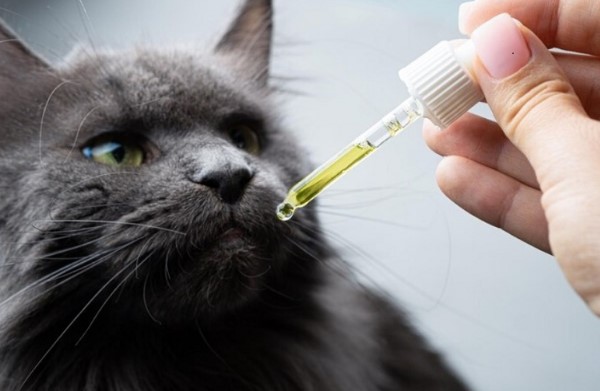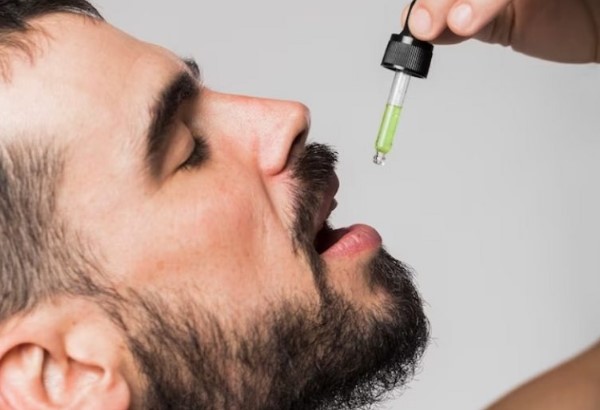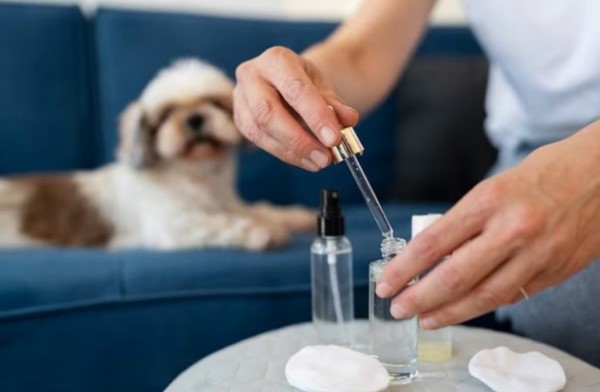Is There a Difference Between Human CBD Oil and Pet CBD Oil?
The world of CBD oil has expanded beyond its initial human applications, now extending its potential benefits to our furry companions. As more and more people turn to CBD for relief from various ailments, a pressing question emerges: Is there a difference between human CBD oil and pet CBD oil?
To unravel this query, we delve into the distinct characteristics that set these two products apart. Before exploring the dissimilarities in ingredients, dosages, and regulations, it’s imperative to first comprehend what CBD oil is and its manifold therapeutic potential. So, let’s embark on this journey to demystify the nuances of CBD oil, both for humans and our beloved pets.
Understanding CBD Oil
Before diving into the differences, it’s crucial to have a clear understanding of what CBD oil is. CBD is a non-psychoactive compound extracted from the cannabis plant. It is known for its potential therapeutic benefits, such as reducing anxiety, alleviating pain, and promoting relaxation. CBD oil is created by extracting CBD from the plant and diluting it with a carrier oil, like coconut oil or hemp seed oil.
Common Uses and Benefits for Humans
Human CBD oil is used by individuals for various purposes, including:
- Pain Management: CBD oil is often used to alleviate chronic pain and inflammation.
- Anxiety and Stress Relief: Many people find CBD helpful in reducing anxiety and promoting a sense of calm.
- Sleep Improvement: Some users report improved sleep patterns after taking CBD oil.
- Skin Health: Topical CBD products may help with skin conditions like acne and eczema.
- Epilepsy Treatment: CBD has been approved as a treatment for some forms of epilepsy.
Common Uses and Potential Benefits for Pets
Pet CBD oil has gained popularity among pet owners for its potential to address various issues in animals, including:
- Anxiety and Stress: It may help pets suffering from separation anxiety or fear of loud noises.
- Pain Relief: Pet CBD oil may reduce pain associated with conditions like arthritis.
- Seizure Management: Some pet owners use CBD to help manage seizures in their pets.
- Appetite Stimulation: In cases of appetite loss, CBD may encourage pets to eat.
- General Well-being: Pet CBD is sometimes used as a daily supplement to promote overall health.

Ingredients and Composition
One of the key differences between human and pet CBD oil lies in their ingredients and composition.
Cannabinoid Content
Human CBD oil typically contains a higher concentration of CBD, while adhering to legal limits for THC (tetrahydrocannabinol), the psychoactive compound in cannabis. The THC content in human CBD oil is often very low (0.3% or less) to ensure it doesn’t produce a “high” in users.
Pet CBD oil, on the other hand, is specially formulated for animals and contains lower CBD concentrations, which are generally considered safe and effective for pets. It also adheres to strict regulations regarding THC content to prevent any potential harm to animals. Some pet CBD products are entirely THC-free.
Carrier Oils and Additives
Human CBD oil often includes carrier oils like hemp seed oil or MCT (medium-chain triglyceride) oil, which are safe for human consumption. It may also contain flavorings or additives designed to enhance taste and palatability.
Pet CBD oil, however, may use different carrier oils and flavors that are appealing to animals. For example, fish oil or bacon-flavored additives are commonly used to make the product more appealing to pets.
Potential Allergens and Sensitivities
Humans may have specific allergies or sensitivities to ingredients commonly found in human CBD oil, such as coconut oil. For pets, allergies or sensitivities to ingredients like fish oil or specific flavorings can also be a concern. Pet owners need to be aware of these potential allergens and choose products that align with their pets’ needs.

Dosage and Concentration
Proper dosing is crucial for both human and pet CBD products to ensure safety and effectiveness. Dosage recommendations differ significantly between the two.
For Humans: Dosage recommendations can vary based on factors like body weight, the severity of the condition being treated, and individual tolerance. It’s common for human CBD oil to come with droppers for precise dosing. Beginners often start with a lower dose (e.g., 10-20 mg of CBD) and gradually increase it as needed.
For Pets: Pet CBD oil products typically provide clear dosage guidelines based on the animal’s size and weight. The dosing is generally lower than that for humans to account for the different metabolisms and sensitivities of animals. Pet owners must follow these guidelines carefully and consult with a veterinarian if unsure about the appropriate dosage for their pets.
Legal Considerations
The legal landscape for CBD products can be complex, and there are differences between regulations for human and pet CBD oil.
Regulatory Differences
Human CBD products are subject to regulations and testing standards specific to human consumption. These regulations are designed to ensure safety and product quality. They often require comprehensive testing for contaminants and accurate labeling.
Pet CBD products are subject to different regulations and may not be as rigorously tested as human products. While some pet CBD manufacturers voluntarily adhere to similar quality and safety standards, there is less consistency in the market.
Quality and Purity
The quality and purity of CBD products are essential for both humans and pets.
Product Quality and Testing
Human CBD products are often held to higher quality and testing standards, including third-party lab testing for potency and purity. These tests ensure that the product contains the advertised amount of CBD and is free from harmful contaminants.

Pet CBD products may vary in quality, and some may not undergo the same level of testing. Pet owners must research and choose reputable brands that provide transparency about their product’s quality.
Potential Risks for Pets
Using substandard CBD products for pets can pose risks. Low-quality products may contain harmful additives or inaccurate CBD concentrations, which can impact the pet’s health. Pet owners need to prioritize their pet’s well-being by selecting trustworthy CBD products.
Effectiveness and Efficacy
The effectiveness of CBD oil can vary between individuals and pets, depending on various factors.
Comparative Analysis
Human CBD oil can sometimes be used for pets, but it’s important to consider differences in dosing and ingredients. Pet-specific CBD products are formulated with the unique needs of animals in mind and may be more effective for pets.
Research on the use of CBD in animals is ongoing, and some pet owners report positive results with pet CBD oil. However, it’s essential to consult with a veterinarian before giving any CBD product to a pet.
Factors Influencing Efficacy
The effectiveness of CBD oil in humans and pets can be influenced by factors such as the underlying condition being treated, the individual’s physiology, and the product’s quality. It may require some trial and error to find the right product and dosage for a specific pet.
Safety Considerations
Both human and pet CBD products have safety considerations.
Potential Side Effects
Humans may experience side effects like dry mouth, dizziness, or changes in appetite when using CBD. Pet owners should be aware of potential side effects in animals, which may include changes in behavior, increased thirst, or diarrhea.
Safety Precautions
For both humans and pets, it’s essential to start with a low dose and gradually increase it to assess tolerance and effectiveness. Consultation with a healthcare professional or veterinarian is advisable, especially for pets with underlying medical conditions or those taking other medications.
Consumer Awareness
Educating consumers is crucial to help them make informed decisions when choosing CBD products for themselves and their pets. Consumers should be aware of the differences between human and pet CBD oil, including dosage, ingredients, and regulations. They should carefully read product labels and consult with healthcare professionals or veterinarians when in doubt.
Conclusion
While there are similarities between human and pet CBD oil, there are also significant differences. These differences encompass ingredients, dosages, legal regulations, quality standards, and potential risks. When considering CBD oil for humans or pets, it’s vital to prioritize safety, research and informed decision-making. Consultation with healthcare professionals or veterinarians can help ensure that the chosen CBD product is suitable for the intended recipient, whether human or animal.